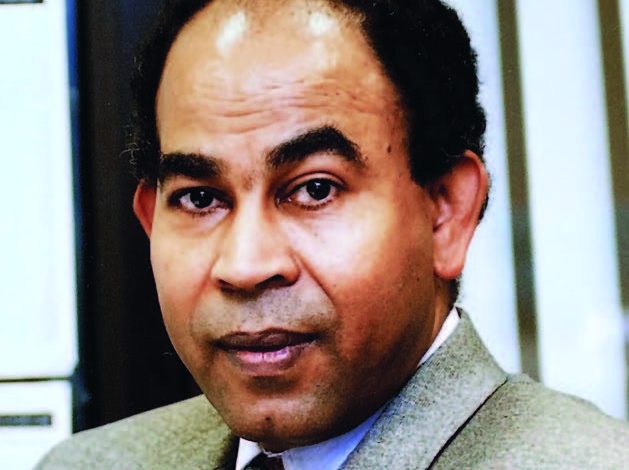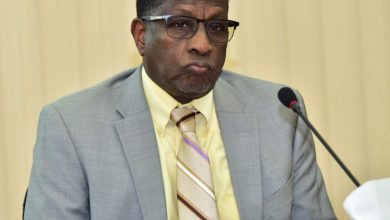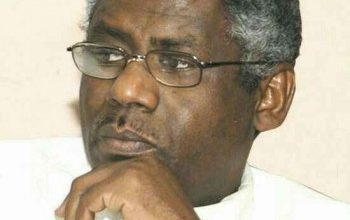UNITAMS will not resolve Sudan’s Crisis

Osman Merghani
Much evidence confirms that the Sudanese elites did not learn anything from the consequences of their differences that hindered the revolution and the transitional period, nor from the raging war that caused unprecedented destruction and effects from which Sudan will suffer for many years to come.
The latest evidence accounts for the controversy that erupted due to the two letters that former Prime Minister Dr. Abdullah Hamdok delivered to the Secretary-General of the United Nations, António Guterres, and to the presidency of the Security Council in the name of the “Coordination of Civilian Democratic Forces” (Tagadum) to demand the extension of the United Nations Integrated Mission to Assist the Transitional Period in Sudan (UNITAMS). This controversy is an extension of the disputes that have surrounded this mission since the Security Council’s decision to form it in late 2020, and continued with its arrival and the official start of its work at the beginning of 2021, and did not stop with the resignation of its head, Volker Perthes, last September as a result of these conflicts, and even the request of the Sudanese Ministry of Foreign Affairs two weeks ago to end its mission.
The two letters did not come out of the blue, but rather came in a position contrary to the government’s recent position, and in anticipation of any decision from the Council with the expiration of the mandate granted to the mission’s mandate, which is scheduled to end on the third of next month. Beyond that, they reflect the heated dispute between the Forces of Freedom and Change (FFC), which are now also working under the interface of the “Coordination of Civil Democratic Forces,” and between the Islamists and other civil forces. The first believes that UNITAMS played an important role in the field of its mandate and that the need for it “has become more urgent today in light of the October 2021 coup and the April 15 war,” according to what was stated in its two letters, while the other parties consider that the UN mission exceeded its mandate and played a role in fueling the political crisis by siding with one party. What is meant is “FFC”, and that any extension of it will not be a door to breakthroughs, but rather a continuation of the crisis, if not an increase in its complications.
In light of these conflicting positions, the United Nations finds itself in an unenviable position, because on the one hand it does not want to appear to be abandoning Sudan in light of this raging war and its humanitarian repercussions, particularly because there are international parties from America to the European Union to human rights and humanitarian organizations which want steps to activate the role of the United Nations and the Security Council in protecting civilians due to acts of violence, abuses and violations, particularly in Darfur, which witnessed ethnic massacres at the hands of the RSF. On the other hand, the international organization realizes that any new extension of the mission will clash with the Sudanese government’s refusal to its continuation, and that in light of the severe differences between the parties to the crisis, the mission cannot achieve any significant success.
Regardless of the position that the Security Council will adopt, I see no hope for the success of any international or regional effort in light of the differences and exclusionary and destructive conflicts between the Sudanese, and the lack of a glimmer of hope that the parties will overcome their differences and rise above the calculations of politics and power struggles in order to save their country from the furnace of this war, a war that essentially resulted from these conflicts.
The United Nations itself and many countries have been reminding the Sudanese that the solution is not in their hands, but in the hands of the Sudanese themselves, who must resolve their differences and reach a common vision for getting their country out of the crises that have afflicted it.
This is the truth that many are unable to comprehend, and fail to strive hard for it. If the Sudanese are unable to resolve their crisis, this solution will not come to them from abroad, and those who need evidence need only look at the experiences of the “Rabi Elarabi” (Arab Spring) countries that also suffered from the consequences of conflicts, chaos and war. The United Nations’ record in intervening to resolve crises has not been encouraging, from Syria to Libya and Yemen, and it has not been fruitful in Sudan since the decision to form the UNITAMS mission in 2020 until the request submitted by the Sudanese Ministry of Foreign Affairs this month stating an immediate end to the mission’s mandate.
The UNITAMS mission stayed in Sudan for more than two years. During this period, it organized dozens of meetings, which sometimes included unknown faces, and faces whose reasons for participating were not clear until the plot became mixed up and the scene became complicated with the large number of cooks and those seeking a role and a share in the power cake. From this standpoint, many saw that the role of UNITAMS in this way and in that charged atmosphere may have contributed to complicating matters, increasing the complications of the transitional period and prolonging its disputes, just as its presence did not prevent the war. Even if the Security Council decided to continue its work and extend it for another year, this would not change anything in the reality of the Sudanese situation, which is a miserable reality due to the failed elites who lost the compass in the midst of their exclusionary struggles that they insist on continuing.
In its letters to Guterres and the President of the Security Council, the Coordination of Civilian Democratic Forces headed by Hamdok said that there is no legitimate government in Sudan that has the right to request the termination of the UNITAMS mandate. The truth is that no one can now claim that he has a mandate that gives him legitimacy to speak on behalf of the Sudanese whose revolution was stolen, whose country was destroyed, and who were thrown into suffering the likes of which they have never known. And UNITAMS, whether it goes or stays, will not solve the Sudan problem, as the crisis is a Sudanese creation, and its solution will not come unless they find a basis for consensus, for the sake of the homeland, not for the sake of sharing seats, or otherwise.


